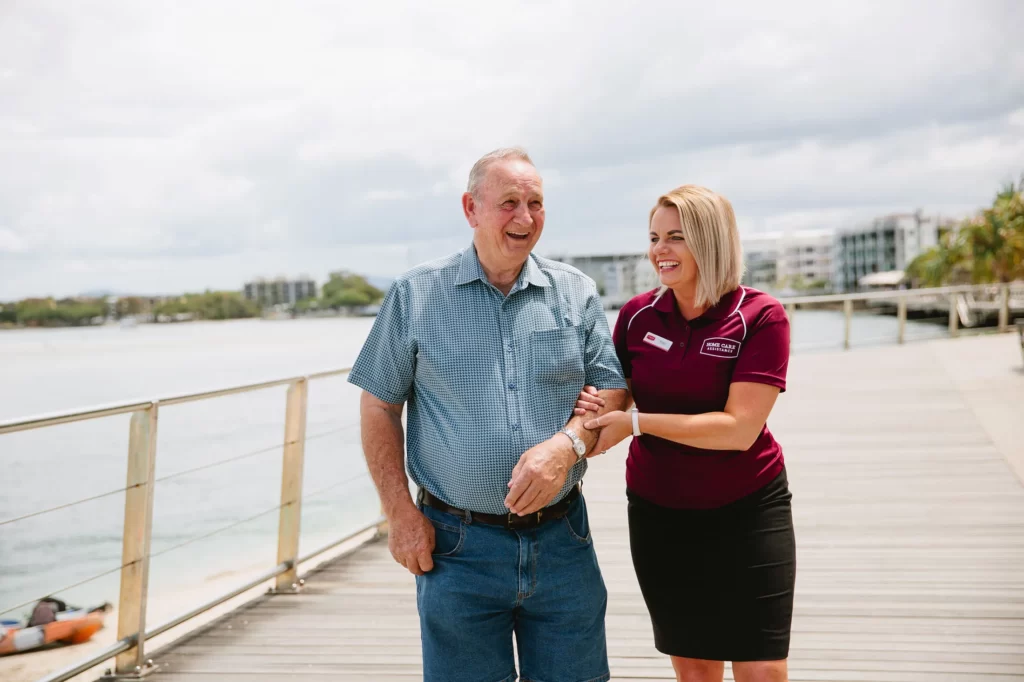There are many reasons seniors develop a habit of hoarding. It can be a result of dementia, a traumatic event, or a variety of other situations. If your senior loved one has developed Diogenes syndrome, also known as senile squalor syndrome, there are several things you can do to curb hoarding behaviours.
Watch for the Characteristics of Elderly Hoarding
Elderly hoarding is often accompanied by personality shifts such as self-neglect, lack of shame, and apathy. The most notable characteristic of elderly hoarding is the state of the domestic environment. Elderly hoarders have an unreasonable number of belongings, and they tend to live in domestic squalor. This unhealthy living environment could exacerbate the condition, and it can also pose physical risks, especially for the elderly. Living in a cluttered home packed with items can lead to falls and injuries.
Professional caregivers can not only help seniors manage several age-related conditions, but also offer respite to family members. In Newcastle, NSW, respite care is a great help to many families. Caring for a senior loved one can be overwhelming at times, which puts family caregivers at risk for burnout. However, an in-home caregiver can take over your loved one’s care, allowing you the time you need to focus on your own health, maintain a full-time job, or care for other members of your family.
Understand the Causes of Hoarding Behaviours
Many elderly hoarders have a history of collecting items such as antiques or stamps in their younger years. However, dementia can magnify certain parts of their existing personalities. In these circumstances, hoarding is often a means of maintaining control in the face of a debilitating disease. When helping a senior loved one curb hoarding, it’s best to understand why he or she is behaving this way.
Use Kindness
When helping a senior curb hoarding, always remain patient and positive. If your senior loved one responds to logical reasoning, try to bargain with him or her. Your loved one may allow you to dispose of certain belongings, especially if you present clear, sympathetic reasons why he or she needs to get rid of these things. He or she likely won’t respond well to harsh language, so avoid raising your voice or using negative words.
Create a Memory Box
A memory box is a great way to bargain with an elderly hoarder. Find a large box, and allow your loved one to place some of his or her favourite possessions in it. This box can also be used to store essential items like a wallet and glasses. It’s a great way for seniors with memory-related conditions to keep track of the items they need on a daily basis.
Clean the House
When cleaning an elderly hoarder’s home, it’s important to create a system. Getting rid of years’ worth of stuff can be a massive undertaking, and it’s important to be prepared for the task. Tackle one room at a time, and sort the objects into keep, donate, and trash piles. If cleaning the house proves to be too much for you, hire a cleaning crew or a caregiver to manage the chores.
For many seniors in Newcastle, NSW, live-in care is an essential component of ageing in place safely and comfortably. However, it’s important for them to have caregivers they can trust and rely on. At Home Care Assistance, we extensively screen all of our live-in and 24-hour caregivers and only hire those who have experience in the senior home care industry. Our strict requirements ensure seniors can remain in the comfort of home with a reduced risk of injury or serious illness.
Seek Help from a Doctor
If your loved one exhibits signs of hoarding, consider taking him or her to a doctor. The physician can examine your loved one, give a diagnosis, and provide a treatment plan. Seeing a doctor is one of the best ways to help seniors curb their hoarding tendencies.
Families who need help caring for a senior loved one can turn to Home Care Assistance, a leading provider of Newcastle, NSW, home care. Services available in our customisable care plans include meal prep, mental and social stimulation, assistance with personal hygiene tasks, and much more. If your loved one needs assistance with daily activities or you need a break from your caregiving duties, call us at (02) 4089 3000 today.
